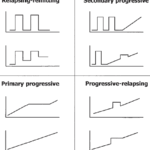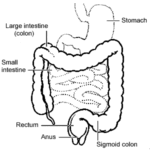 Diets and dietary supplements are often used by people with multiple sclerosis (MS).
Diets and dietary supplements are often used by people with multiple sclerosis (MS).
This updated Cochrane review reports on studies of dietary habits as an effective treatment for MS patients. Continue reading Diets for multiple sclerosis
 Diets and dietary supplements are often used by people with multiple sclerosis (MS).
Diets and dietary supplements are often used by people with multiple sclerosis (MS).
This updated Cochrane review reports on studies of dietary habits as an effective treatment for MS patients. Continue reading Diets for multiple sclerosis
 In this Cochrane review, researchers at the Sydney Children’s Hospital, in New South Wales, Australia, evaluated the evidence that omega-3 polyunsaturated fatty acid supplementation reduces morbidity and mortality. Continue reading Omega-3 for cystic fibrosis
In this Cochrane review, researchers at the Sydney Children’s Hospital, in New South Wales, Australia, evaluated the evidence that omega-3 polyunsaturated fatty acid supplementation reduces morbidity and mortality. Continue reading Omega-3 for cystic fibrosis
 Researchers at the University of Pennsylvania School of Medicine, in Philadelphia, compared the fatty acid profiles of different commercially available US tuna products. Continue reading Does it matter if your tuna is packed in water or oil?
Researchers at the University of Pennsylvania School of Medicine, in Philadelphia, compared the fatty acid profiles of different commercially available US tuna products. Continue reading Does it matter if your tuna is packed in water or oil?
 Dietary advice is the basis of treatment of diabetes, but there’s uncertainty about the effects of polyunsaturated fatty acids.
Dietary advice is the basis of treatment of diabetes, but there’s uncertainty about the effects of polyunsaturated fatty acids.
Researchers at Uppsala University, in Sweden, compared the effects of diets rich in omega-3 or omega-6 fatty acids on glucose and lipoprotein metabolism in these patients. Continue reading Benefits in type 2 diabetes of eating fatty fish
 Researchers at The Ohio State University, in Columbus, recorded the effects of conjugated linoleic acid (an unsaturated omega-6 fatty acid) and safflower oils on blood sugar levels, blood lipids, and inflammation. Continue reading Effects of safflower oil and linoleic acid in diabetes
Researchers at The Ohio State University, in Columbus, recorded the effects of conjugated linoleic acid (an unsaturated omega-6 fatty acid) and safflower oils on blood sugar levels, blood lipids, and inflammation. Continue reading Effects of safflower oil and linoleic acid in diabetes
 Fatty acids may be important dietary components that modulate osteoporotic fracture risk.
Fatty acids may be important dietary components that modulate osteoporotic fracture risk.
Researchers at The Ohio State University, Columbus, studied fatty acid intake in relation to osteoporotic fractures. Continue reading Fatty acids and the risk of fracture in women
 Mortality in long-term hemodialysis patients is mostly attributed to cardiovascular complications, and may be related to chronic inflammation.
Mortality in long-term hemodialysis patients is mostly attributed to cardiovascular complications, and may be related to chronic inflammation.
Researchers at Harbor-UCLA Medical Center, in Torrance, California, hypothesized that the anti-inflammatory benefits of higher dietary intake of omega-3 compared with omega-6 polyunsaturated fatty acids might lower inflammatory processes and decrease the risk of death. Continue reading The omega-6 to -3 ratio and survival in hemodialysis patients
Two new studies are reviewed. Continue reading Omega-3 and the risk of diabetes
 Low intake of fish, polyunsaturated fatty acids (PUFA) and vitamin D deficiency has been suggested to play a role in the development of schizophrenia.
Low intake of fish, polyunsaturated fatty acids (PUFA) and vitamin D deficiency has been suggested to play a role in the development of schizophrenia.
Researchers from Scandinavia evaluated the association between the intake of different fish species, PUFA, and vitamin D, and the prevalence of psychotic-like symptoms in Swedish women. Continue reading Fatty acids, vitamin D, and the risk of psychotic-like symptoms
 The associations between different sources of dietary omega-3 and omega-6 fatty acids and the risk of depression have not been prospectively studied.
The associations between different sources of dietary omega-3 and omega-6 fatty acids and the risk of depression have not been prospectively studied.
So, researchers at the Harvard School of Public Health, in Boston, examined these associations. Continue reading Omega-3 and -6 and the risk for depression
 Researchers at Fred Hutchinson Cancer Research Center, in Seattle, Washington, reviewed the evidence. Continue reading Is it possible to prevent prostate cancer with diet and supplements?
Researchers at Fred Hutchinson Cancer Research Center, in Seattle, Washington, reviewed the evidence. Continue reading Is it possible to prevent prostate cancer with diet and supplements?
 Vegetarian diets exclude fish, the major dietary source of fatty acids, eicosapentaenoic acid (EPA) and docosahexaenoic acid (DHA), which are critical regulators of brain cell structure and function.
Vegetarian diets exclude fish, the major dietary source of fatty acids, eicosapentaenoic acid (EPA) and docosahexaenoic acid (DHA), which are critical regulators of brain cell structure and function.
Researchers at Arizona State University, in Mesa, examined associations between mood and polyunsaturated fatty acid intake in vegetarian and omnivorous diets. Continue reading Effect of vegetarian diets on mood
 The effect of a dietary omega-3 fatty acids supplementation on triglycerides and markers of insulin sensitivity was investigated by researchers at Tufts University School of Medicine, in Boston. Continue reading Benefits of omega-3 fatty acids in people with HIV
The effect of a dietary omega-3 fatty acids supplementation on triglycerides and markers of insulin sensitivity was investigated by researchers at Tufts University School of Medicine, in Boston. Continue reading Benefits of omega-3 fatty acids in people with HIV
 Researchers at the National Institute of Environmental Health Sciences, in Research Triangle Park, North Carolina evaluated the relationship between distal large bowel cancer and omega-3 intake in Caucasians and African Americans. Continue reading Intake of polyunsaturated fatty acids and the risk of bowel cancer
Researchers at the National Institute of Environmental Health Sciences, in Research Triangle Park, North Carolina evaluated the relationship between distal large bowel cancer and omega-3 intake in Caucasians and African Americans. Continue reading Intake of polyunsaturated fatty acids and the risk of bowel cancer
 Getting more oleic acids from olive or peanut oils for instance, might lower the risk of this inflammatory disease of the colon and rectum by as much as 90%, reported researchers at the University of East Anglia in Norwich, England, during Digestive Disease Week. Continue reading Oleic acid associated with lower risk of ulcerative colitis
Getting more oleic acids from olive or peanut oils for instance, might lower the risk of this inflammatory disease of the colon and rectum by as much as 90%, reported researchers at the University of East Anglia in Norwich, England, during Digestive Disease Week. Continue reading Oleic acid associated with lower risk of ulcerative colitis
 About 1 in 13 babies in the US is born weighing less than 5 pounds, 8 ounces (2,500 grams). They’re considered low birth weight and at increased risk of serious health problems.
About 1 in 13 babies in the US is born weighing less than 5 pounds, 8 ounces (2,500 grams). They’re considered low birth weight and at increased risk of serious health problems.
Might preventing low birth weight be another benefit of omega-3 fatty acids? Continue reading Mum’s fatty acid profile and fetal growth
 They appeared in an issue of the American Journal of Clinical Nutrition along with an editorial that helped put it all in perspective.
They appeared in an issue of the American Journal of Clinical Nutrition along with an editorial that helped put it all in perspective.
Let’s summarize the results. Continue reading Three studies of fatty acids in the elderly
 Dry eye is a common complaint, but difficult to treat.
Dry eye is a common complaint, but difficult to treat.
Researchers from Aston University, in Birmingham, UK reviewed the evidence for omega-3. Continue reading Omega-3 to treat dry eye
 Maintenance therapy for Crohn’s disease includes immunosuppressive drugs, with an associated risk of infection.
Maintenance therapy for Crohn’s disease includes immunosuppressive drugs, with an associated risk of infection.
Might omega-3 fatty acids be an alternative? Continue reading Omega-3 tested to prevent relapse in Crohn’s disease
 Â Probably not, according to researchers at the University of Edinburgh, in the UK. Continue reading Do fatty acid supplements prevent allergic disease?
 Probably not, according to researchers at the University of Edinburgh, in the UK. Continue reading Do fatty acid supplements prevent allergic disease?